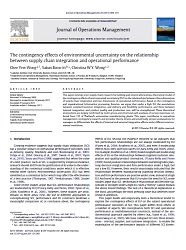اختلافات تطبیق: نقش حسابداری در سقوط سپرده های امانی سرخپوستان آمریکا
Reconciling conflict: The role of accounting in the American Indian Trust Fund debacle
تاریخ: ۲۰۱۰
پایگاه: الزویر
![]()
نام مجله: Critical Perspectives on Accounting
قیمت: ۲۰۰,۰۰۰ ریال
تعداد صفحات انگلیسی: ۱۳
تعداد صفحات فارسی: ۱۸
کد: ۲۰۰۱۸
چکیده فارسی
در ۱۸۸۷، کنگره ایالات متحده آمریکا اراضی قبایل بومی آمریکا را تقسیم کرد که کنترل این تقسیم به نمایندگی از افراد بومی آمریکایی در سپردههای امانی در دست خود دولت بود. در قرن بعد ادعای تقلب، سوءمدیریت و مشکلات حسابداری مکرراً نیاز به اصلاح را مطرح میکردند که هیچکدام چندان موفق نبود. در نتیجه، نه دولت فدرال و نه مالکان امانی هیچکدام نمیدانند که در حال حاضر تراز حسابها ۷ دلار است یا ۱۰۰ میلیارد دلار. در ۱۹۹۴، کنگره دوباره برای تطبیق حسابهای امانی بومیان تلاش کرد. این بار، دعوی قضایی باعث تشدید مسئولیت وزیر کشور (سازمان مسئول حسابهای امانی) برای تکمیل حسابداری تاریخی با استفاده از ترازنامههای معتبر، و تضمین اینکه پرداختهای آتی اصل و سود دقیق و منظم باشد، گردید. بیش از ده سال بعد، وزارت پیشرفتش را در قالب بروشوری ۲۴ صفحه ای منتشر کرد که از تعریف محدود حسابداری تاریخی و تصمیم آن برای محدود کردن تطبیقها با حسابهایی که از ۱۹۹۴ وبعد از آن مفتوح بودند. در بروشور، وزارت بیان کرد که تعریف محدودش از حسابداری تاریخی و نقایص دیگر در تلاشهای وزارت با در نظرگرفتن هزینه یک حسابداری کاملتر قابل قبول است. در نهایت، بروشور بیان میکند که وزارت کشور نقش خود را بعنوان امین ایفا کرده و بدین ترتیب گزینه مناسبی برای کنترل این حسابها است. این مالکان سپردههای بومی آمریکایی هستند که بصورت غیرمنطقی مشکل سازی میکنند.در این مقاله، ما بروشور وزارت را بررسی کرده و آن را در روابط متناقض گستردهتر بین بومیان و دولت بررسی میکنیم. ما به دیدگاه محدود وزارت از حسابداری تاریخی و نقشی که این محدودیت میتواند در عمیق کردن یا حل تعارضاتی به طول یک قرن علاقمندیم. ما بیان میکنیم که بروشور مثالی از چگونگی تلاش گروههای درگیر در منابع اقتصادی برای چهارچوب سازی و کنترل روند حسابداری بعنوان روشی برای کنترل این تعارضات و محدود کردن معانی ممکن که میتوانند پاسخگوئی را در مجموعه ای از روابط وفق دهند ارائه میدهد. ما با تکیه بر محدودیتهای حسابداری در بازخوانی عادلانه و متعادل روابطی که دسترسی نامتناسب به قدرت را رقم میزنند، و تعارضات برجسته در دعاوی اقتصادی بحث را به پایان میبریم.
چکیده انگلیسی
In 1887, the United States Congress broke American Indian Tribal lands into allotments which it held and controlled “on behalf” of individual American Indians in trust funds. The following century has been marked by allegations of fraud, mismanagement and accounting failures prompting repeated calls for reform, none very successful. As a result, neither the federal government nor trust holders themselves are sure whether the account balances are $7 or $100 billion currently.In 1994, Congress passed yet another attempt to reconcile the American Indian Trusts. This time, legislation spelled out the responsibility of the Secretary of the Interior (the department in charge of the trust accounts) to provide a complete “historical” accounting including accurate reports of balances, and to ensure that future payments of principal and interest were accurate and timely. More than 10 years later, the Interior reported its progress in a 24-page brochure that defended the Interior’s narrowed definition of “historical” and its decision to limit its reconciliation to accounts that were open on 1994 or later. In the brochure, the Interior argued that its limited definition of historical and any other shortcoming in the Interior’s efforts were acceptable given the cost of a more complete accounting. Finally, the brochure argued that the Interior Department had fulfilled its role as trustee and, as such, is the good guy in the conflict over these accounts. It is the Interior’s American Indian Trust holders who are unreasonable troublemakers.In this paper, we examine the Interior’s brochure and locate it within the larger conflicted relations between American Indians and the federal government. We are interested in the Interior’s narrow vision of historical accounting, and the role this narrowness might play in deepening or resolving centuries long conflicts. We argue that the brochure provides an example of how parties in dispute over economic resources may attempt to frame or control the accounting process itself as a way to control those conflicts and limit the possible meanings that could be accorded to accountability within a particular set of relations. This episode illustrates how the ability to frame accounting definitions, formulations, and boundaries becomes a powerful means of controlling the final allocation of both dollars and political privilege. We conclude by accentuating the limitations of accounting in restoring a sense of justice and “balance” to relationships that embody uneven access to power and long-standing conflicts over economic claims
مشخصات استنادی
Oakes, L. S., & Young, J. J. (2010). Reconciling conflict: The role of accounting in the American Indian Trust Fund debacle. Critical Perspectives on Accounting, 21(1), 63-75.
دانلود اصل مقاله
 ویژگیهای مقاله اختلافات تطبیق: نقش حسابداری در سقوط سپرده های امانی سرخپوستان آمریکا
ویژگیهای مقاله اختلافات تطبیق: نقش حسابداری در سقوط سپرده های امانی سرخپوستان آمریکا
مقاله “اختلافات تطبیق: نقش حسابداری در سقوط سپرده های امانی سرخپوستان آمریکا” در سال ۲۰۱۰ در مجله Critical Perspectives on Accounting و در پایگاه اطلاعاتی الزویر نمایه شده است. این مقاله در مورد روابط متناقض گستردهتر بین بومیان و دولت و دیدگاه محدود وزارت از حسابداری تاریخی و نقشی که این محدودیت میتواند در عمیق کردن یا حل تعارضاتی به طول یک قرن و محدودیتهای حسابداری در بازخوانی عادلانه و متعادل روابطی که دسترسی نامتناسب به قدرت بحث میکند. همچنین براساس اطلاعات پایگاه اطلاعاتی گوگل اسکولار این مقاله ۹ بار مورد استناد قرار گرفته است.









دیدگاه خود را ثبت کنید
تمایل دارید در گفتگوها شرکت کنید؟در گفتگو ها شرکت کنید.